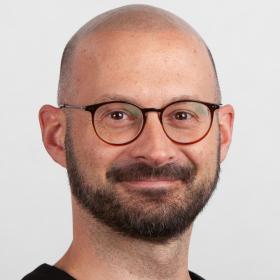Want to share your screen? See the person you're talking to? Contact us via digital library desk! We will be with you shortly.
Monday-Friday


Want to share your screen? See the person you're talking to? Contact us via digital library desk! We will be with you shortly.
Monday-Friday


The workshop on Diamond Open Access sparked engaged discussions during the WSL Research Day on 24 June. This community-owned publishing model poses a promising alternative to commercial publishers and received great interest. Questions from the audience tackled impact, findability and funding.
Diamond Open Access describes a community-driven, academic-owned publishing model, charging no fees to reader, authors or institutions. Learn more about this model in our Lib4RI-Update #38.
The workshop began with presentations from three organizers who set the stage for discussions on Diamond Open Access publishing.
The presentations generated considerable interest, with attendees expressing general openness to Diamond Open Access concepts. Echoing survey findings, many participants indicated they would prefer directing their funding toward actual research rather than increasingly expensive article processing charges (APCs).
However, several obstacles to widespread adoption emerged from the discussion. The relatively low impact factors of many Diamond Open Access journals, coupled with limited awareness of these publications, present significant barriers. This challenge particularly affects early-career researchers on fixed-term contracts, for whom publication impact (i.e., in ‘high-impact’ journals) remains crucial for career advancement. While the current system continues to favour large commercial publishers, some Diamond Open Access journals are demonstrating growing influence, suggesting that sustained community support could accelerate this trend.
A critical discussion centred on the long-term viability of Diamond Open Access journals. Participants examined both manuscript quality standards - building on points raised in Brockerhoff's presentation - and sustainable financing models. The conversation returned to the historical roots of scholarly publishing, with scientific institutions or societies identified as potential supporters for such journals, though this approach may require considerable advocacy.
The policy landscape appears increasingly favourable for Diamond Open Access, with support from UNESCO, EU member states, and key Swiss stakeholders including the Swiss National Science Foundation (SNF) and swissuniversities. This institutional backing provides an encouraging foundation for future development.
While significant challenges remain, the workshop demonstrated both the necessity and feasibility of transitioning toward Diamond Open Access models. The combination of community interest, growing institutional support, and successful examples like The New Zealand Journal of Forestry Science suggest that meaningful change is possible. Success will ultimately depend on sustained engagement from the research community and continued advocacy for scholar-led publishing initiatives. The workshop concluded with a plan to establish a group of scientists who will develop perspectives for WSL on DOA publishing, which should serve as a starting point for an ETH domain-wide initiative.